
Inguna Skadiņa
Dr. sc. comp., Chief Scientific Officer
Inguna Skadiņa, Doctor of Computer Science, Chief Scientific Officer of Tilde, has been working for over 30 years in the field of natural language processing. Her research interests include human-computer interaction, natural language understanding, the development of language resources and tools for less-resourced languages, and machine translation. She has led and participated in many national and international projects (FP5-FP7, ICT PSP, H2020, CEF and COST) related to the language technology. Her current activities include participation in H2020 projects StairwAI and IntelComp, as well as several large-scale national projects. I. Skadiņa is also a professor at the University of Latvia and principal investigator at the Institute of Mathematics and Computer Science, University of Latvia. She is the author of more than 70 research papers. I. Skadiņa is a national coordinator of the CLARIN research infrastructure in Latvia, an expert of the Latvian Council of Sciences, member of several professional organizations and committees of different scientific events related to the natural language processing.

Raivis Skadiņš
Dr. sc comp., Director of R&D
Raivis Skadiņš, Dr. Comp. Sc., is the director of research and development at Tilde. He is leading development of Tilde’s language technology products – machine translation, virtual assistants, speech technologies, proofing tools and others. R. Skadiņš has participated in FP7 projects Accurat, TTC, TaaS and MLi, ICT PSP projects LetsMT! and META-NORD, Horizon 2020 project QT21, currently involved in Horizon 2020 projects COMPRISE, ELG, and LYNX and several national research projects.. His main research interest is machine translation, he received Dr. Comp. Sc. degree in 2012 (thesis “Combined Use of Rule-Based and Corpus-Based Methods in Machine Translation”) and is the author and a co-author of more than 40 publications.
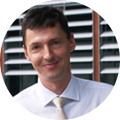
Andrejs Vasiļjevs
Dr. sc. comp., Co-founder, Member of the Board
Andrejs Vasiļjevs is the co-founder and a board member of Tilde. His work involves fostering collaboration between industry and academia to advance multilingual solutions across Europe. He has led the creation of the terminology portal EuroTermBank and the machine translation platform LetsMT and initiated the national language technology platform NLTP. Andrejs serves on the boards of the Multilingual Europe Technology Alliance (META-NET) and the European Big Data Value Association (BDVA), and he chairs the Knowledge Society Program Council of the Latvian National Commission for UNESCO. Andrejs earned his Ph.D. in Computer Science from the University of Latvia and has been awarded an honorary doctorate by the Academy of Sciences of Latvia. He has authored or co-authored more than 70 research papers on terminology management, machine translation, language infrastructures, and other developments in language technology.

Jurgita Kapočiūtė-Dzikienė
Dr. sc. comp, Senior researcher
Jurgita Kapočiutė-Dzikienė is a language technologies specialist, a senior researcher at Tilde Lithuania, and a full professor at the faculty of Informatics of Vytautas Magnus University (Kaunas, Lithuania). She defended her PhD in agent technologies for artificial intelligence in 2011. Shortly afterwards she started her postdoc in language technologies. Internships during her postdoc at the universities in Belgium, Norway and Sweden provided an opportunity to gain knowledge working with professionals in this field. Jurgita is working on various language and speech tasks, including the bot cloud, sentiment analysis and machine translation projects. She is an editorial board member of several international journals, a program committee member of several conferences/workshops, and a co-author of more than 40 scientific publications.
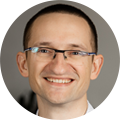
Mārcis Pinnis
Dr. sc. comp., Chief AI Officer
Mārcis Pinnis has received a Master’s of Philosophy Degree in Computer Speech, Text and Internet Technology from the St. Edmund’s College (University of Cambridge, Cambridge, UK) in 2009 for the thesis “An Adaptable Scientific Summarizer” and a PhD degree in Computer Science (Dr.sc.comp.) from the University of Latvia in 2015 for the thesis “Terminology Integration in Statistical Machine Translation”. He has been working in Tilde since 2011. Mārcis Pinnis has participated in the development of statistical morpho-syntactic taggers for Latvian, Lithuanian and Estonian, named entity recognition for Latvian and Lithuanian, term extraction and cross-lingual term alignment methods for European languages, information retrieval and extraction, multilingual terminology-enriched statistical machine translation, neural machine translation and many other challenging problems related to natural language processing. Before joining Tilde he has been involved in the development of several scientific natural language processing projects in the Institute of Mathematics and Computer Science of the University of Latvia, involving a morphological analyzer and synthesizer for Latvian and a speech synthesis system for Latvian. While in Tilde, he has been involved in a number of European projects, including ACCURAT, LetsMT, MultilingualWeb-LT, QT21, TaaS, TTC as well as several local research projects in Latvia, Lithuania, and Estonia.
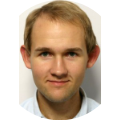
Matīss Rikters
Dr. sc. comp., Researcher
Matīss has been working in Tilde since 2014. In 2019 he graduated from the University of Latvia, receiving the Doctor of Computer Science (Dr.sc.comp) degree for the thesis “Hybrid Machine Translation by Combining Multiple Machine Translation Systems”. In Tilde Matīss has worked on machine translation related problems in research projects such as “Large-scale statistical model optimization techniques for innovative technologies for machine translation”, “Linguistic Knowledge in Estonian Machine Translation”, “Neural Network Modelling for Inflected Natural Languages”, “Forest Sector Competence Centre”, as well as participated in Tilde’s submissions to the annual Conference on Machine Translation (WMT) shared tasks on news translation. Matīss has a strong publication record in various areas of machine translation. He is also a programme committee member of the main machine translation conferences. Currently, Matīss is also a postdoctoral researcher at the University of Tokyo.
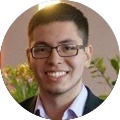
Askars Salimbajevs
Dr. sc. comp., Researcher
Askars Salimbajevs is a researcher at Tilde since 2014. His research in Tilde is devoted to the research and development of the automatic speech recognition system for Latvian and related to natural language processing tasks, where machine learning and neural network techniques are applied. He has received a PhD degree in Computer Science (Dr.sc.comp.) from the University of Latvia in 2019 for the thesis “Modelling Latvian language for automatic speech recognition”. He has been involved in several national and international research projects on speech processing, including current participation in H2020 project Comprise. His research activities have led to several research publication on speech recognition for less resourced languages.
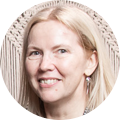
Daiga Deksne
Dr. philol., Mg. comp. sc., Mg. psych., Software Architect
Daiga Deksne graduated from the University of Latvia in 1991 by completing Applied Mathematics’ program. In 2009 she received a Master’s Degree in Psychology from the Riga Teacher Training and Educational Management Academy. In 2016 she received a Master’s Degree in Philology (thesis title: “Prefixal Slang Verbs in Modern Latvian”), while in 2021 - a PhD Degree in Philology (thesis title: “Semantics and Functionality of Prefixal Verbs in Latvian”) at the University of Latvia. She has been working at Tilde since 1997. Daiga has participated in the development of many language technology solutions - electronic dictionaries, Latvian and Lithuanian proofing tools, morphological analysers, syntactical parsers, machine translation solutions, virtual agents as well as other natural language processing tools. She has participated in many national and international projects in the field of language technologies. Her research activities has led to research publication on language resources, parsing and grammar checking, machine translation, and virtual assistants.

Toms Bergmanis
Dr, M.Inf., Researcher
In 2020, Toms graduated from his PhD program at Institute for Language, Cognition and Computation, School of Informatics, the University of Edinburgh (thesis title: "Methods for Morphology Learning in Low(er)-Resource Scenarios"). As a part of his thesis, Toms has authored papers on and developed state-of-the-art systems for context-sensitive lemmatization and morphological inflexion. In 2017 Toms' work won the first place in SIGMORPHON 2017 Shared Task on morphological reinflection in 52 Languages. Prior to his doctoral studies, Toms was awarded First Class Masters' degree with Honours in Informatics from the University of Edinburgh (thesis title: "Domain Adaptation in Low Resource Statistical Machine Translation"). On June 2018 Toms had an internship with Tilde where he, under the supervision of Dr M.Pinnis, worked on the document-markup translation and terminology integration in neural machine translation. A year later, Toms joined Tildes machine translation group as a researcher. In his research, Toms aims to work towards methods that take advantage of various levels, e.g., subword, word, sentence, document, of the underlying linguistic structure of human languages.
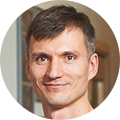
Valters Šics
Mg. comp. sc., Researcher
Valters Šics is a lead developer in the Tilde machine translation group. He graduated from the University of Latvia in 2009 and received a Master’s Degree in Computer Science. Valters has been working in Tilde since 2004. He has participated in several national and international projects such as LetsMT! (ICT-PSP), developing a cloud-based machine translation platform and machine translation systems for the languages of the Baltic states. Besides work on machine translation solutions, Valters has been involved in the development of language technology products like dictionaries, proofing-tools.

Rinalds Vīksna
Mg. comp. sc., Researcher
Rinalds is a researcher at Tilde and PhD student at the University of Latvia. His main research interests are information extraction from text and anonymization of text data. He is also part of Tilde's data group, which is responsible for monolingual and parallel corpora collecting, cleaning and maintenance.
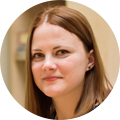
Inese Vīra
MA, User Experience
Inese works at Tilde since 2013 in field of artificial intelligence and Virtual Assistants. She is responsible for User Experience and Human-Computer conversations. Inese is experienced bot designer and trainer, including Virtual Assistant conversation flow, design and VA knowledge. She also teaching new bot trainers on Tilde AI platform. With Master of Arts in 3D computer generated imaging from Kingston University, London, she also has a wealth of experience in the 3D graphics and app development. You may already know the popular virtual assistant Laura who is a great chat companion and for many users a great friend.
Former Researchers
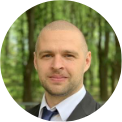
Kaspars Balodis
Dr. sc. comp., Researcher
Kaspars Balodis received his PhD in Computer Science (Dr.sc.comp) from the Faculty of Computing, University of Latvia in 2016. He has been working in the University of Latvia since 2010 as a researcher in quantum computing and in Tilde since 2017 as a researcher in machine learning and natural language processing. In Tilde he has developed the state-of-the-art natural language understanding system for the Tilde's intelligent virtual assistant platform. Kaspars Balodis is the author or a co-author of more than 20 research papers in theoretical computer science and machine learning.

Artūrs Stafanovičs
B. comp. sc., developer
Artūrs interest to natural language processing has developed from the NLP seminars at the University of Latvia. This interest grew into a bachelor’s thesis and publication at the annual Fifth Conference on Machine Translation (WMT). In 2020 Artūrs joined Tilde machine translation research group. Since then, he has been developing text and speech-based machine translation solutions for European languages. He is continuing his studies at the University of Latvia (Mg. comp. sc) and works on his master’s thesis on machine translation supervised by Tilde.
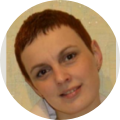
Eva (Tatjana) Gornostaja
Dr. Philol., Business Manager, Terminology products & Services
Tatjana Gornostaja (Doctor of Philology with specialisation in applied and computational linguistics, thesis “Latvian-Russian Machine Translation in Government-to-Citizen Communication”, 2010). She has been working for Tilde since 2005, now leading the terminology group and managing cloud terminology services. Tatjana participated in and/or led scientific coordination in several large-scale European projects, such as the FP6 TRIPOD, EUROSTARS SOLIM, FP7 TTC, ACCURAT, LT-Web, TaaS, and MLi, ICT PSP Let’sMT! and META-NORD, as well as national projects in Latvia. In the H2020 FREME, she led the work on data innovation and take up and technology transfer. Tatjana participated in the organisation of several events, such as workshops on the Creation, Harmonisation, and Application of Terminology (CHAT 2011, 2012, 2013) and European Data Forum (EDF 2015). She is a member of committees of several events related to language, data, and knowledge technologies and resources. Tatjana serves on the board of the European Language Resources Association (ELRA), is a member of the Big Data Value Association (BDVA), leads the SME group in BDVA, and participates in the W3C community and best practices groups on Linked Data for Language Technologies.
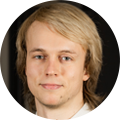
Rihards Krišlauks
Mg. comp. sc., Researcher
Rihards Krišlauks is a researcher and a developer at Tilde in the machine translation group. He has a strong background in computer science and machine learning. Rihards has had a key role in creating state of the art neural machine translation systems for Baltic languages and has worked on solutions for language data processing in various parts of Tilde’s machine translation pipeline. He has been involved in several national and international research projects. Rihards’ academic interests are closely related to machine learning and applications of neural networks. His previous academic efforts are in the field of formal language theory.